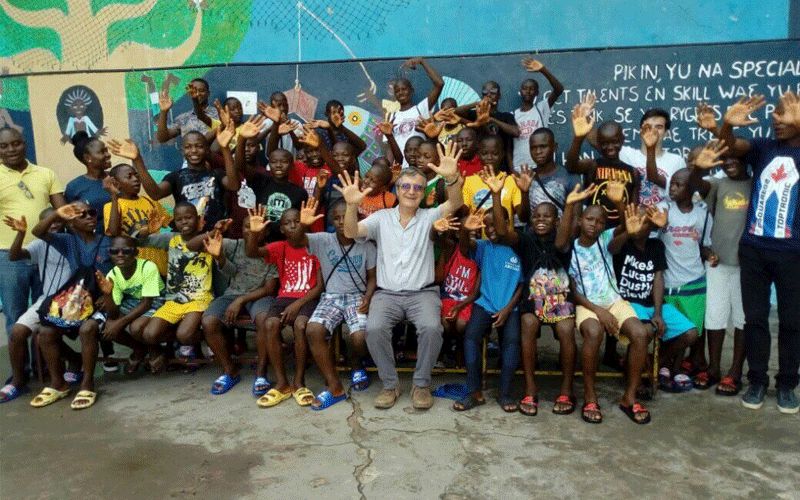Rehabilitation, the Salesians have explained, is a gradual process that includes formal classes, daily games, sports, music, singing, drama, dancing, counseling and prayer. The parents and extended families of participants are contacted several times by social workers before final reunification.
On reunification day, “an agreement is signed between parents and Don Bosco Fambul to secure a safe environment for the children to continue along a path of personal growth, including ensuring they will have the food, clothing, shelter and education they need.”
Social workers continue to visit the children and their families until they finish secondary school.
Meanwhile, in the West African nations of Senegal, Gambia and Guinnea Bissau, the Salesians of Don Bosco (SDB) are putting in place initiatives aimed at curbing the migration of African youths from their home countries to Europe in search for a better life, a move that exposes them to crime and exploitation.
In these countries, SDB-run Stop Human Trafficking Campaign is set to offer new activities aimed at improving the living standards of the youth including education opportunities and self-employment skills.
(Story continues below)
The initiatives are expected to be implemented under a three-nation project dubbed, “Investing in the future: protection, formation and employment for returning migrants, potential migrants and unaccompanied minor migrants in Senegal, Gambia and Guinea Bissau.”
“The goal is to improve the living conditions of youth in these countries to reduce the need and risk of migration, which often leads to exploitation and human trafficking,” the Salesians have explained on their website.
According to the missionaries, “These are countries affected by food insecurity, high exposure to risks associated with climate change, drought and floods, and alarming poverty rates that have generated significant flows of internal migration as well as a significant loss of workforce.”
With the project, the missionaries hope to contribute to the reduction of irregular migration from the three countries, which constitute the main migratory corridors leading to Mali, Mauritania and from there to the routes of human traffickers through North Africa up to Spain and Italy.
The project activities are expected to include access to education through scholarships and work grants, to prepare the youths “for employment to meet current labor market needs, ” as well as kits that will enable participating youths to “start micro-enterprises in strategic sectors.”
These activities are expected to run for 15 months under the facilitation of Salesian Non-Governmental Organisation (NGO), International Volunteer for Development (VIS) and the Salesian Mission Office, Don Bosco Missions of Turin, Italy, among other partners.
The project will also work to strengthen the existing formal and informal psycho-social care that young migrants receive when they return back to their home countries to help them reintegrate into their communities.
The three-nation project is also expected to “raise awareness among youth about the risks of migration. This will be done through a series of radio campaigns and cultural events such as theatrical performances, film screenings and debates locally as well as in Italy,” the Salesians have indicated.
SDB launched the Stop Human Trafficking Campaign in Italy in October 2015 to raise awareness on dangers of youth migration, with a special focus on African youth leaving the continent in search for “greener pastures” in Europe.
According to the missionaries, previous campaign initiatives have succeeded in deterring young people from leaving countries where people are most at risk of human trafficking by “providing analysis and research on the real reasons for migration, informing potential youth migrants about the risks of the journey and the real chances of success, along with giving individual guidance to those who want to leave.”








